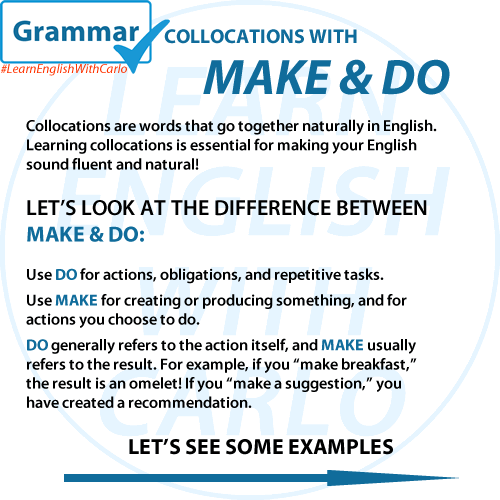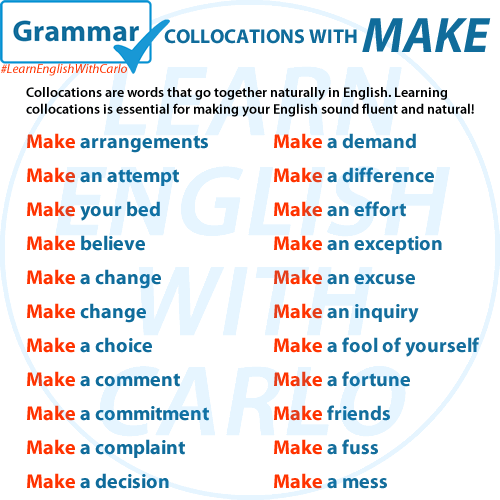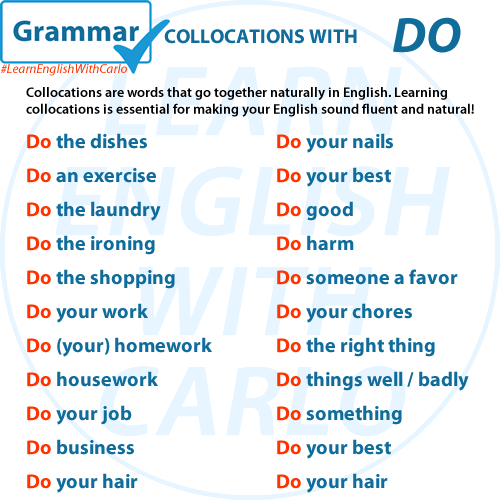


Collocations are words that go together naturally in English.
Learning collocations is essential for making your English sound fluent and natural!
LET’S LOOK AT THE DIFFERENCE BETWEEN MAKE & DO:
Use DO for actions, obligations, and repetitive tasks.
Use MAKE for creating or producing something, and for actions you choose to do.
DO generally refers to the action itself, and MAKE usually refers to the result.
For example, if you make breakfast, the result is an omelet! If you make a suggestion, you have created a recommendation.
Make arrangements
Make an attempt
Make your bed
Make believe
Make a change
Make change
Make a choice
Make a comment
Make a commitment
Make a complaint
Make a decision
Make a demand
Make a difference
Make an effort
Make an exception
Make an excuse
Make an inquiry
Make a fool of yourself
Make a fortune
Make friends
Make a fuss
Make a mess
Do your nails
Do your best
Do good
Do harm
Do someone a favor
Do your chores
Do the right thing
Do things well / badly
Do something
Do your best
Do your hair
Do the dishes
Do an exercise
Do the laundry
Do the ironing
Do the shopping
Do your work
Do (your) homework
Do housework
Do your job
Do business
Do your hair
